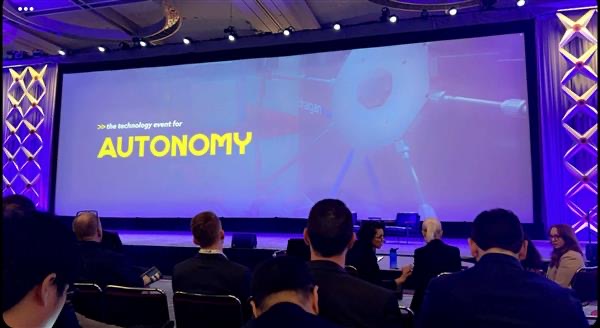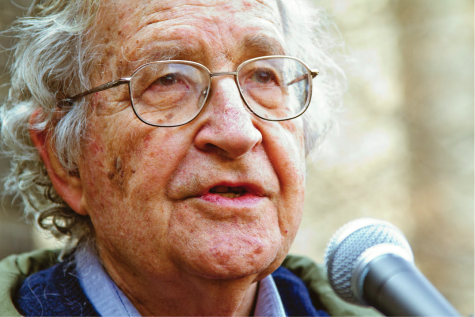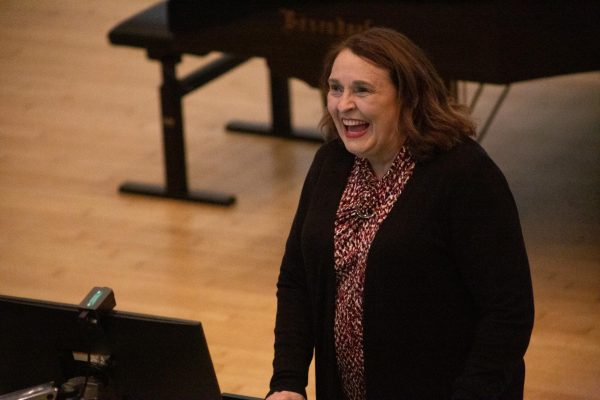Wise talks anti-racism at UND
Time Wise spoke on racism at the chester Fritz Auditorium on Monday. Photo by Nick Nelson/ The Dakota Student
By the end of the night, anti-racist author and educator Tim Wise had the whole Chester Fritz Auditorium giving him a standing ovation. Throughout his presentation, Wise touched on the topics of color-blind policies, immigration and the historical significance of racism in the U.S.
Associate Vice President for Diversity and Inclusion Sandra Mitchell introduced Wise at the event.
“These are the conversations that can truly change society,” Mitchell said, highlighting the importance of having an open discussion on racism.
In the first half of the 20th century, it was legal to deny racial minorities access to housing, voting and jobs. Wise said the creation of the Federal Housing Administration, the GI Bill and the Homestead Act has limited racial minorities to live in urban burrows and Native American reservations. However, since the end of segregation, new color-blind laws have been enacted to prevent racial inequality in housing. These laws now bar common practices such as redlining.
Color blindness offers a seemingly simple way to deal with race, according to Wise. If individuals and institutions don’t notice race, then they cannot act in a biased manner.
However, shutting our eyes to the complexities of racism does not make them disappear, according to Wise. He believes racial differences that are openly discussed is a better avenue than ignoring race completely.
“When you’re a part of the dominant group, you have the luxury to be oblivious to the daily struggles of minority groups,” Wise said. “We’re not guilty for the systemic racism in our country, but we’re responsible for solving the problem. You can’t solve problems you aren’t willing to confront.”
Wise spoke about racism both as a systemic and personal problem in today’s society.
“We see (racism) as a personal problem, not a systemic one,” Wise said. “It’s easy to think past racism when you don’t have a racist bone in your body, but it’s short-sighted to not believe in the systemic discrimination that is thriving today. Those who think systemic racism is no longer a problem might say, ‘We’ve had a black president for eight years, so why do we need to continue to talk about racism?’”
Wise cautioned this type of logic. With the same reasoning, Wise said you could say you’re not sexist because you’ve been married to a person of the opposite sex for the same length of time. Since Obama has been in office, close to 30 percent fewer Americans describe race relations as good, according to a New York Times poll.
“We ignore the historical significance of racism,” Wise said.
According to Wise, the past has molded our subconscious preconceptions about a race. It’s quite easy to recall multiple stereotypes about each race. Even though people may not believe in the stereotype, people can subconsciously start to accept them.
“We’re a part of the problem,” Wise said.
To those who are eager to learn more about Wise’s work, he recommended his book “White Like Me” as a book that a majority of North Dakotans should be able to relate to.
Nick Sallen is the opinion editor for The Dakota Student. He can be reached at [email protected]
















